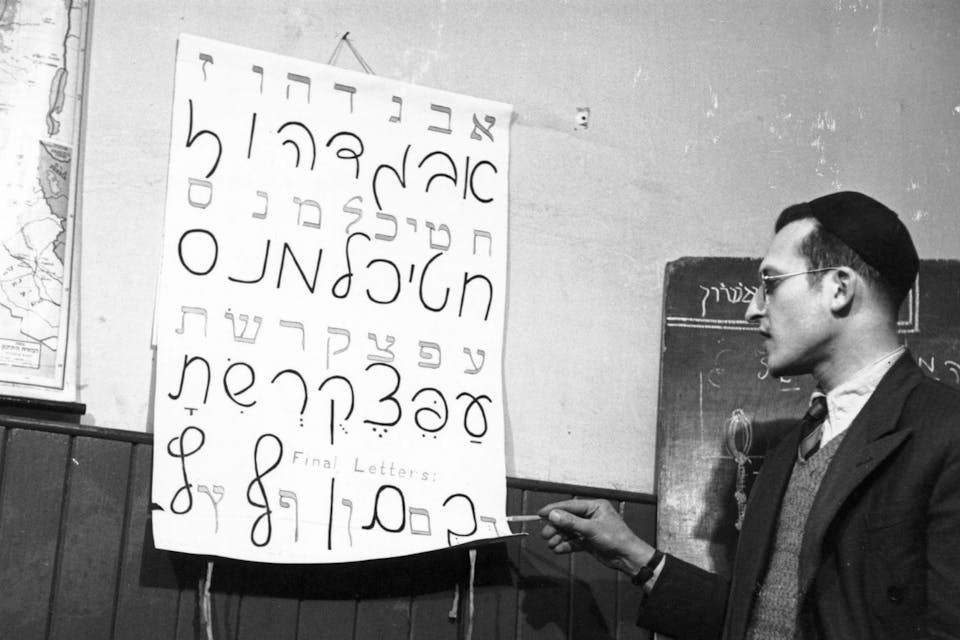
April 13, 2017
My Life with Hebrew
When people find out that I teach Hebrew literature, they invariably remark, “Oh, you must be fluent.” I’ve now been working hard at it for many decades, and I’m still not there.
In my third year as a graduate student in English at Columbia University, I came to a life-changing conclusion: as much as I enjoyed studying Victorian literature, I couldn’t see myself devoting my life to it. My real passion lay instead with the study of Jewish and Hebraic culture. After finishing my Columbia doctorate in the late 1970s and sampling different sub-specialties in Jewish studies—midrash, medieval Hebrew poetry, and others—I settled on modern Hebrew literature.
By that time, my Hebrew was quite good, at least for someone who had never previously aspired to be a scholar in the field. In fact, it was a source of some pride. The Conservative movement’s Hebrew school I had attended as a child in Worcester, MA had been staffed by committed Hebraists; entering college, I saw my future role in life as a rabbi or a Jewish educator, and at the summer camp where I served as a counselor during my college years, Hebrew was the semi-official language. By then, I could not only read texts in Hebrew but speak the language confidently—or so I thought. But once I decided to profess Hebrew, the rules of the game changed demonstrably. The glass that had been half-full now seemed, in my own eyes, half-empty.
I say “in my own eyes” because much of the anxiety I would experience as an American Hebrew speaker, and to some degree still experience as a long-time professor of Hebrew literature, has come from my sense of exposure to the judgment of others. (Whether that adverse judgment is a fact or largely a projection is something I’ll never know.) To this day, whenever I’m among my Israeli colleagues, speaking Hebrew is always a self-conscious performance. I often think about what I want to say before I say it, pre-testing grammar and word choice. The times I have made gross errors are etched into my brain and will never be repeated; less well remembered are those gratifying times when a felicitous phrase has come to me unbidden. Even at my best, I know full well that I’ll never shake my American accent, or enjoy the ease of my Israeli colleagues in skipping intuitively from ironic banter to street Hebrew and back to academic discourse within a few beats.